🏥 Healthcare: Essential Concepts for Reading Comprehension
Healthcare is a crucial subject, deeply intertwined with technological advancement, ethical considerations, and public policy. Passages on healthcare often present debates around scientific breakthroughs, societal impacts, and resource distribution. Understanding these concepts allows readers to critically evaluate arguments, recognize biases, and analyze data-driven narratives.
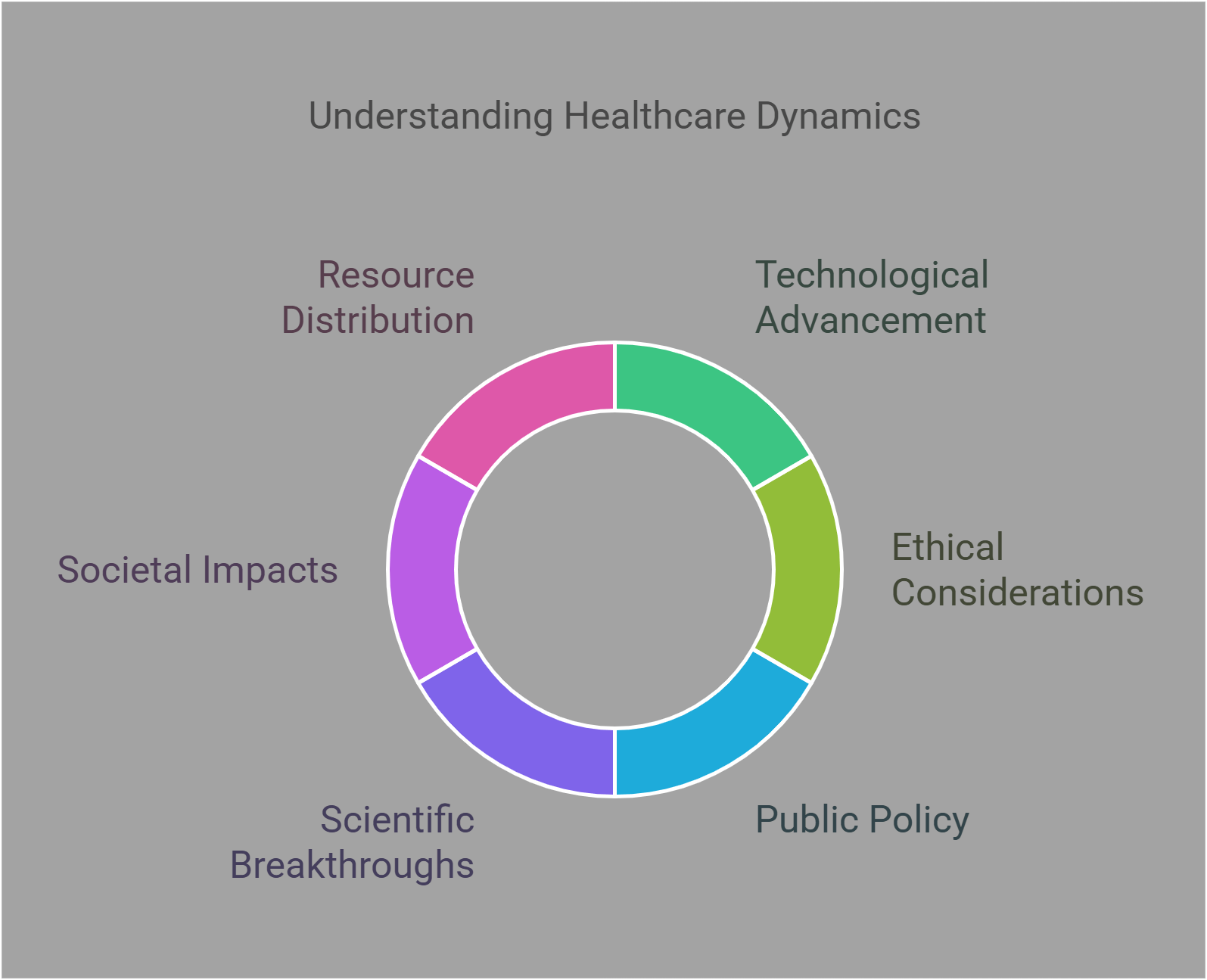
📋 Overview
In this guide, we’ll explore these key healthcare concepts:
- Personalized Medicine
- Digital Therapeutics
- Psychedelic Therapy
- Longevity Research
- AI in Healthcare
- Telemedicine
- Public Health
- Healthcare Policy
- Medical Ethics
- Epidemiology
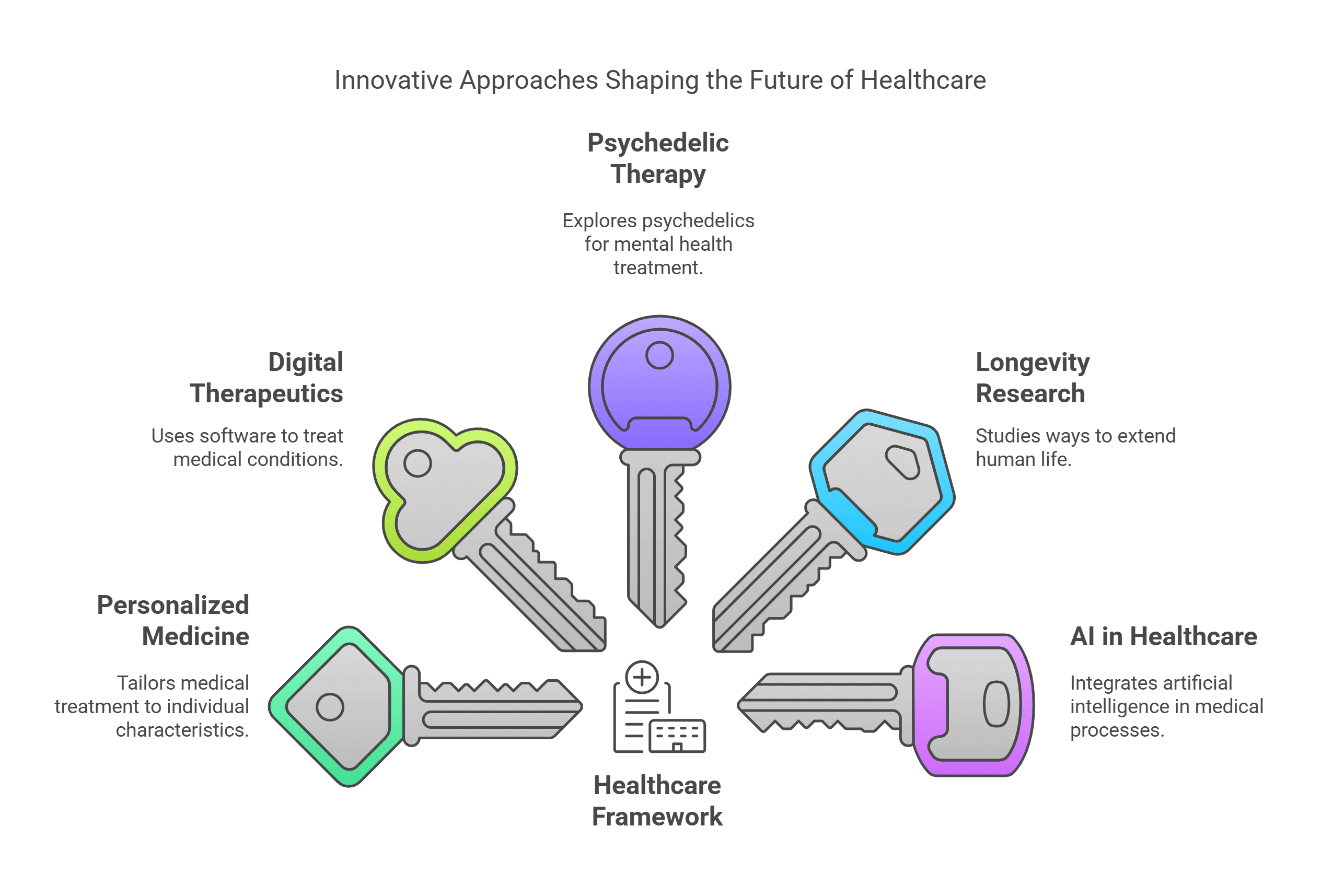
🔍 Detailed Explanations
1. Personalized Medicine
Personalized medicine tailors healthcare treatments to an individual’s unique genetic makeup, lifestyle, and environment. This approach departs from the traditional one-size-fits-all model, leveraging advances in genomics to optimize treatment effectiveness. For instance, it enables precise cancer therapies that target genetic mutations, reducing side effects while improving outcomes.
- Tailored to individual genetic and environmental factors.
- Improves treatment efficacy and safety.
- Uses advances in genomics and big data.
- Raises questions about accessibility and cost.
- Potentially revolutionizes disease management.
Explained Simply: Imagine your friend is allergic to certain snacks, but you love them. Personalized medicine is like giving everyone their favorite, safe snack instead of offering the same to everyone. It’s special and just for you!
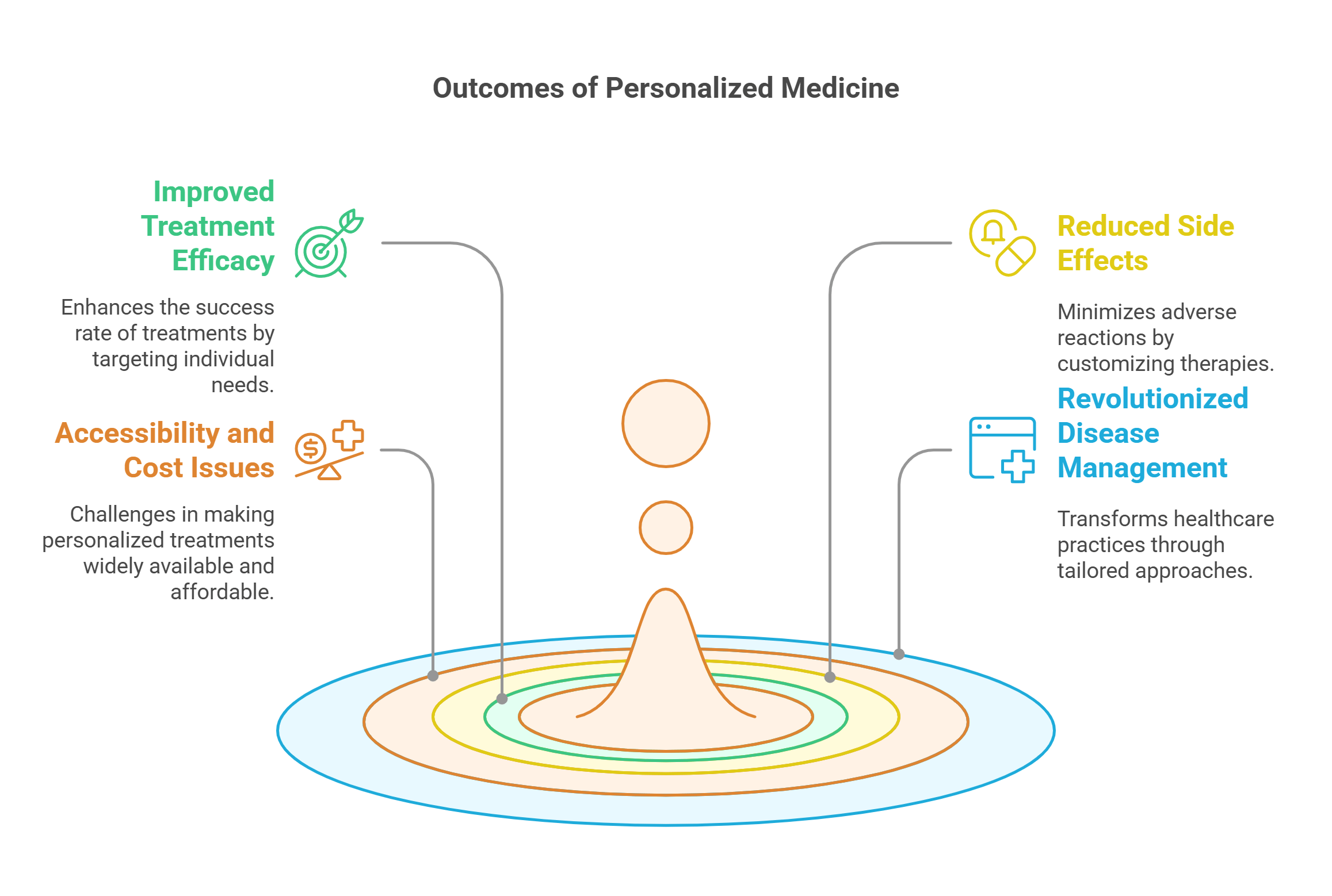
2. Digital Therapeutics
Digital Therapeutics (DTx) involve the use of software-based interventions to treat, manage, or prevent medical conditions. Unlike traditional pharmaceuticals, DTx delivers evidence-based therapeutic interventions via apps, sensors, and other digital platforms. It has gained traction for managing chronic diseases, such as diabetes and mental health conditions, offering cost-effective and scalable healthcare solutions.
- Software-driven medical interventions.
- Evidence-based and clinically validated.
- Helps manage chronic and mental health conditions.
- Scalable and accessible solutions.
- Promotes patient engagement and adherence.
Explained Simply: Think of it as a superhero app on your phone that helps keep you healthy by giving you reminders and exercises, like a friendly coach cheering you on every day.
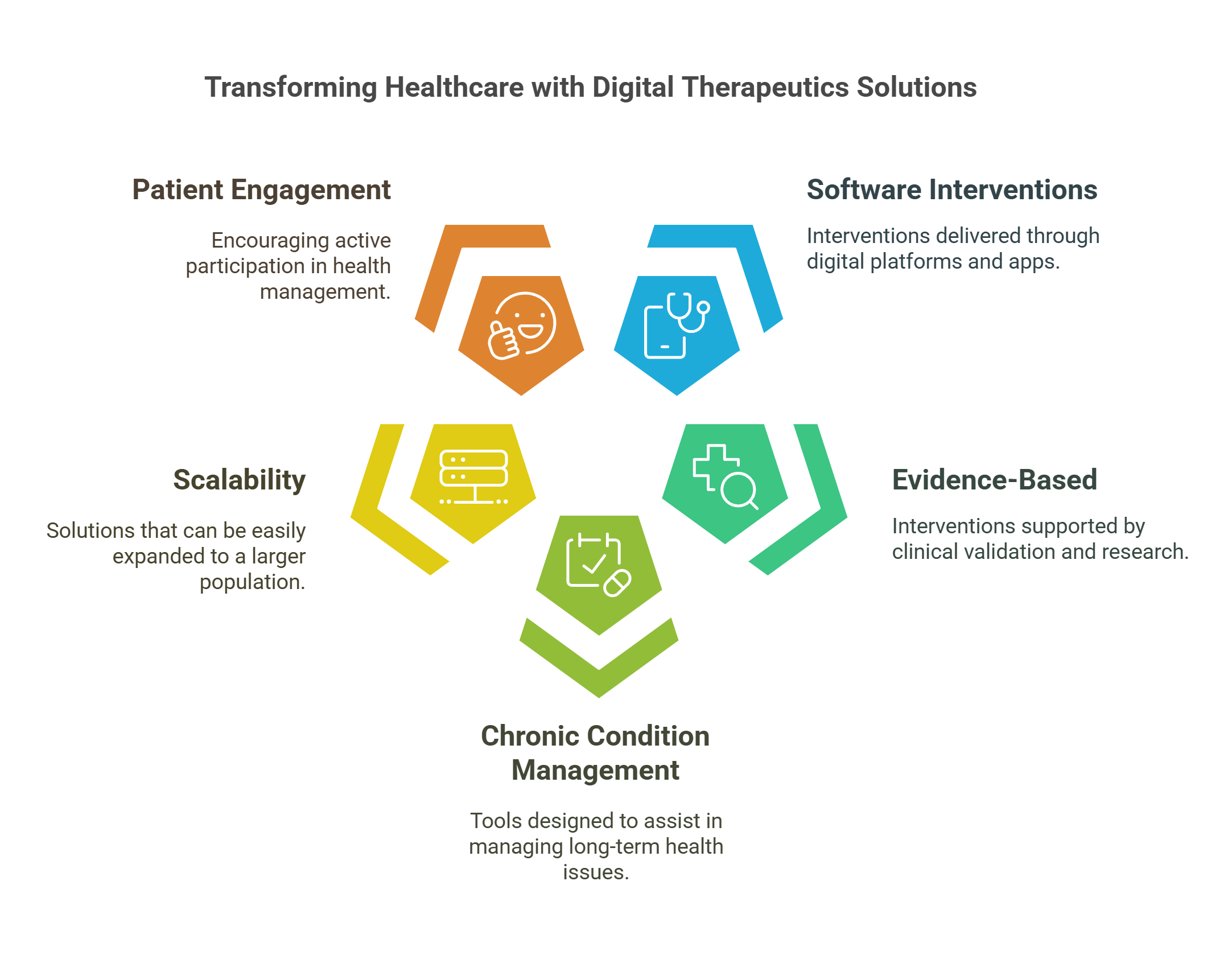
3. Psychedelic Therapy
Psychedelic Therapy uses controlled doses of substances like psilocybin and MDMA to treat mental health conditions, including depression, PTSD, and addiction. Under professional supervision, these therapies aim to unlock suppressed emotions or memories and promote healing through enhanced brain connectivity and neuroplasticity.
- Involves controlled psychedelic substance use.
- Targets mental health conditions like PTSD and depression.
- Enhances neuroplasticity and emotional processing.
- Requires professional supervision.
- Raises regulatory and ethical concerns.
Explained Simply: Imagine your brain is a big garden, and some weeds (problems) are hiding the flowers (good feelings). Psychedelic therapy is like a magical gardener helping you find and fix those weeds carefully.
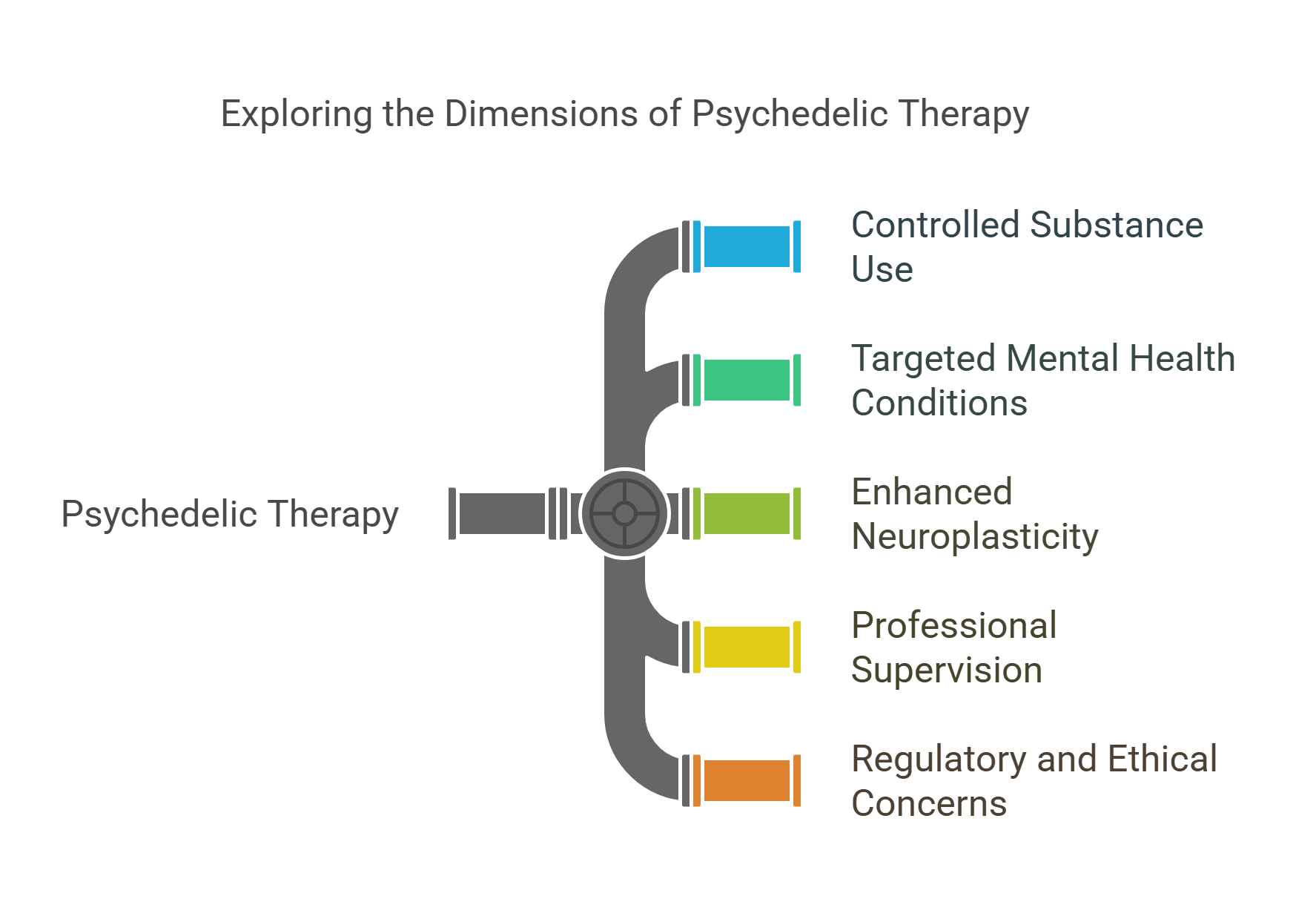
4. Longevity Research
Longevity Research explores methods to extend the healthy human lifespan by addressing aging at a cellular and molecular level. Scientists study processes like cellular senescence, DNA repair, and caloric restriction to slow aging and improve the quality of life in older adults.
- Studies aging and ways to extend healthy lifespan.
- Focuses on cellular and molecular processes.
- Includes techniques like caloric restriction and DNA repair.
- Aims to improve quality of life in later years.
- Raises ethical and resource-related debates.
Explained Simply: Think of your body as a toy car. Longevity research is like figuring out how to keep its batteries and parts working perfectly for much longer so you can play more!
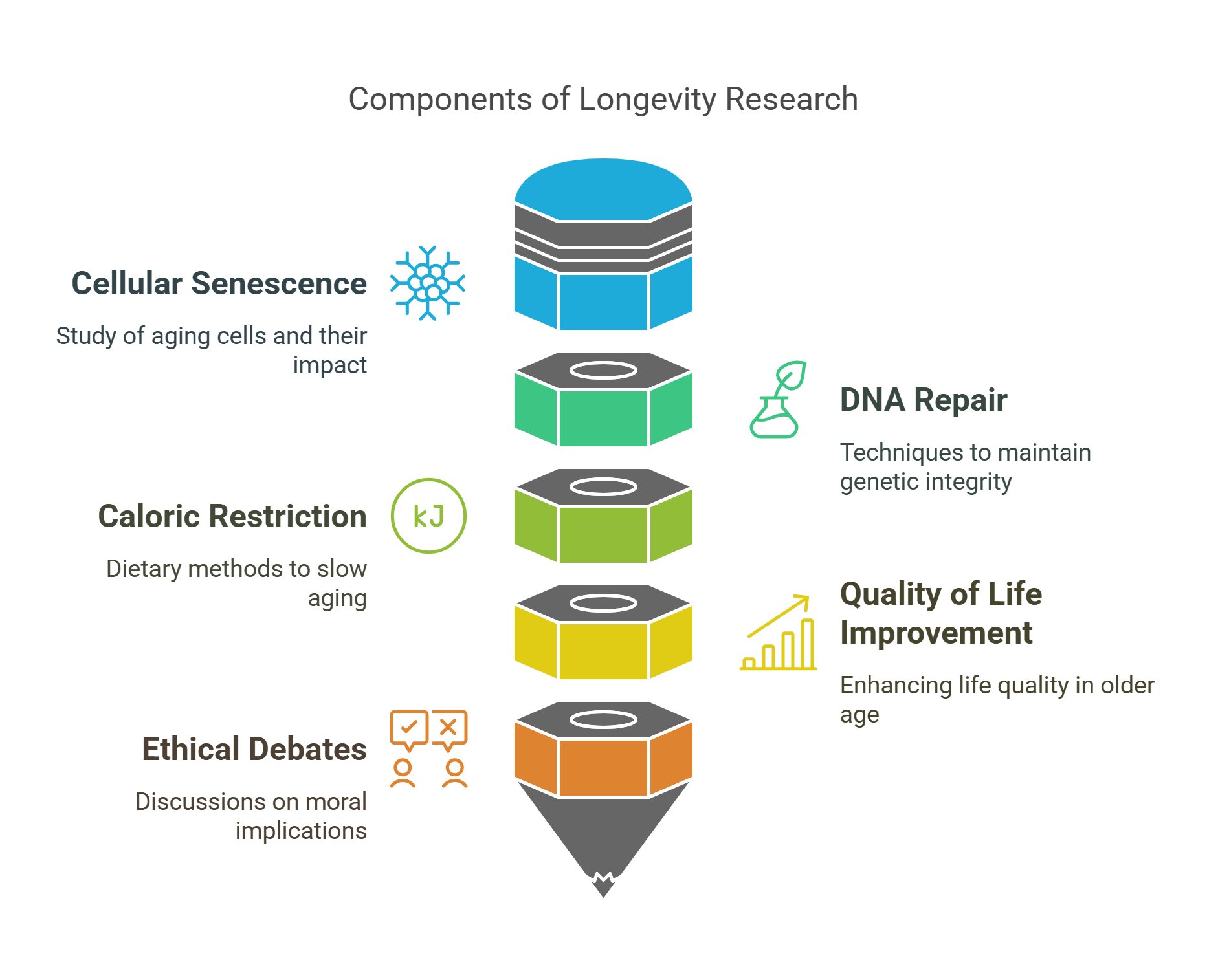
5. AI in Healthcare
AI in Healthcare uses artificial intelligence technologies to assist with diagnosis, treatment planning, and patient monitoring. AI systems analyze large datasets, such as medical images and patient records, to identify patterns and provide insights that improve healthcare delivery.
- AI assists in diagnosis and treatment planning.
- Analyzes large datasets for insights.
- Enhances efficiency and accuracy in healthcare.
- Raises concerns about privacy and ethical bias.
- Complements, but does not replace, human expertise.
Explained Simply: Imagine having a super-smart robot doctor that helps real doctors figure out what’s wrong and how to fix it faster!
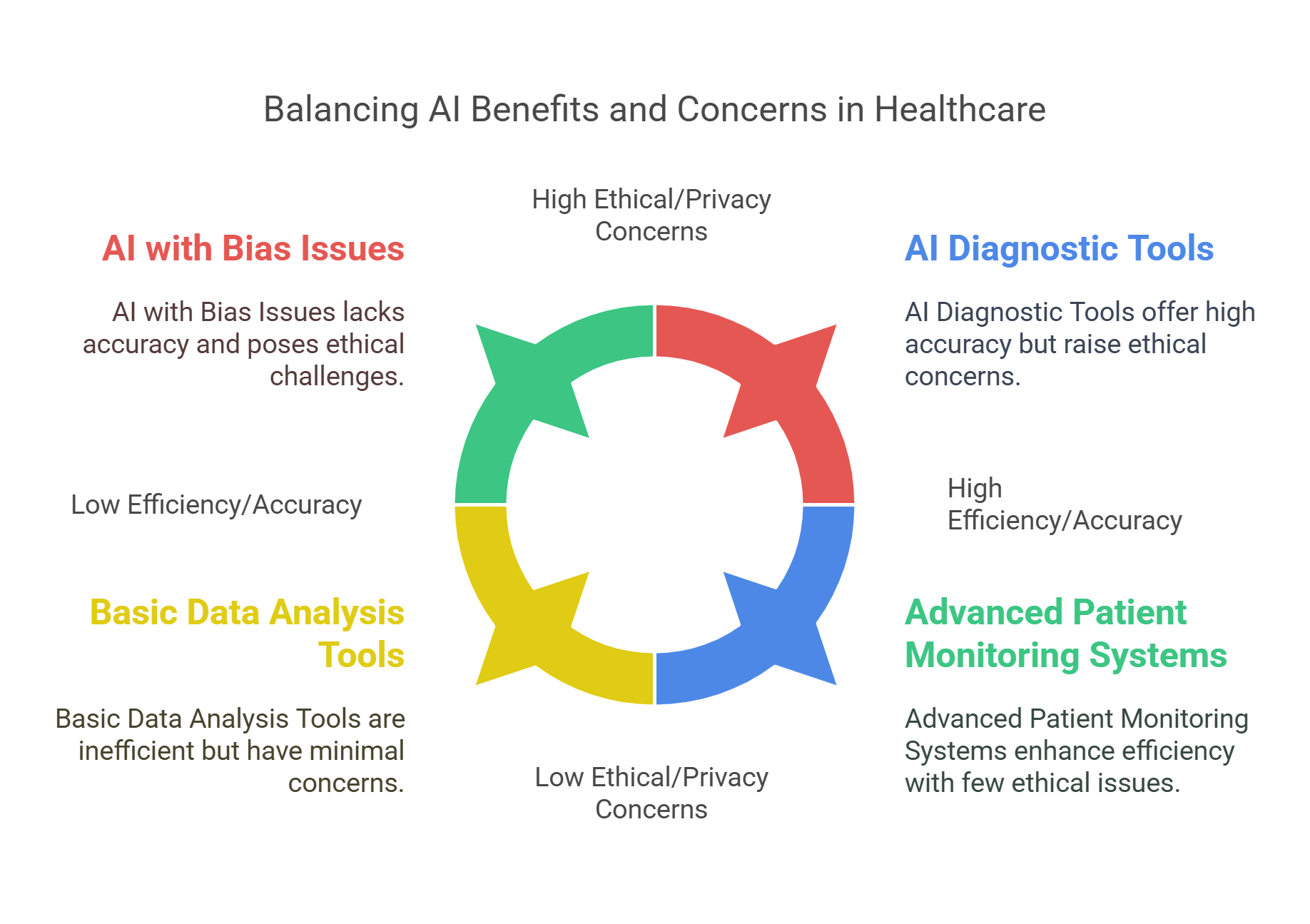
6. Telemedicine
Telemedicine allows patients and doctors to connect remotely using technology like video calls and health apps. It became essential during the COVID-19 pandemic, enabling access to healthcare while minimizing physical contact.
- Remote healthcare delivery using technology.
- Increases accessibility for underserved areas.
- Reduces need for in-person visits.
- Prominent during the COVID-19 pandemic.
- Faces barriers like technology access and personal connection.
Explained Simply: It’s like visiting the doctor without leaving your home. You talk to them through your computer or phone, and they help you feel better!
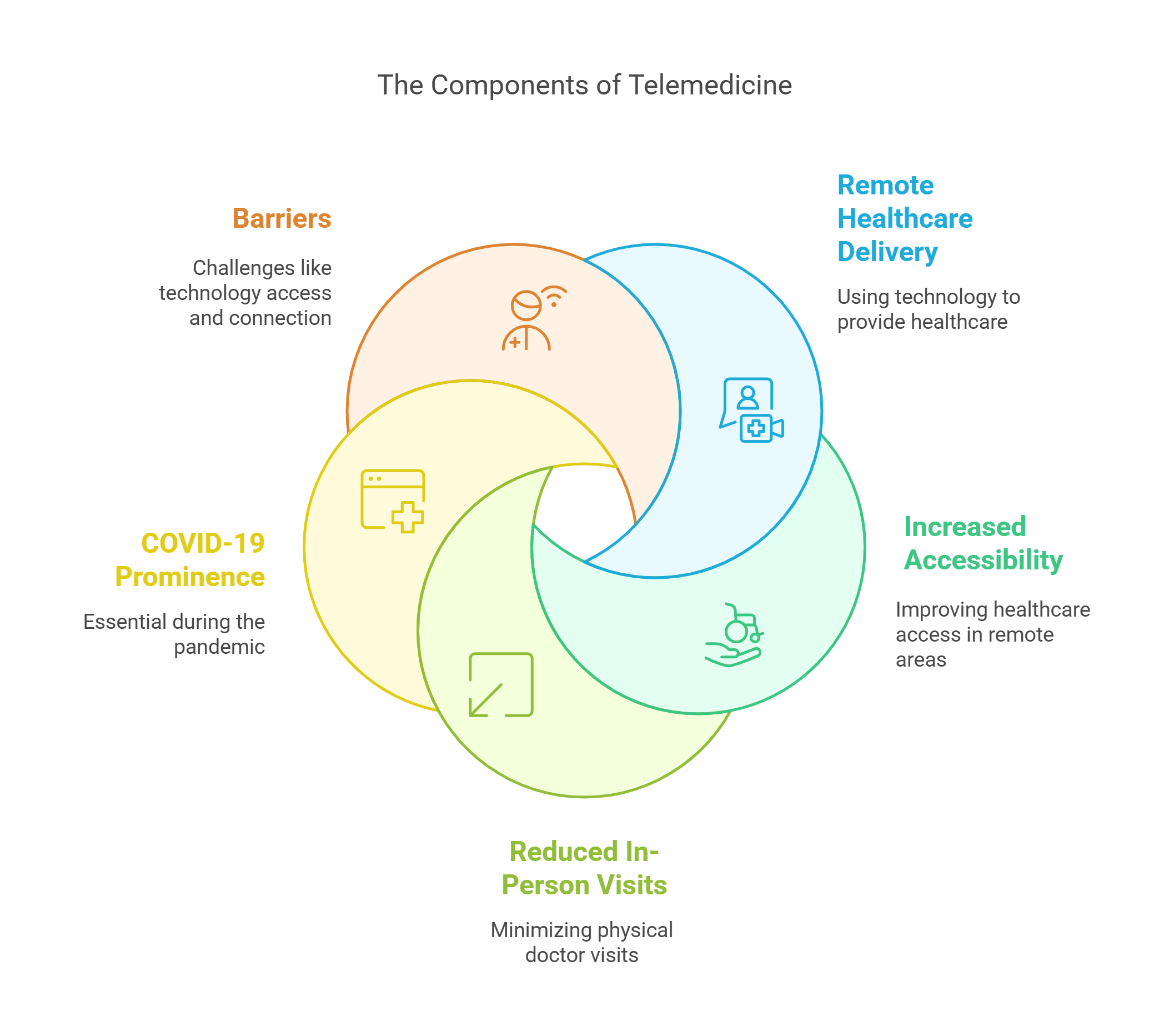
7. Public Health
Public Health focuses on protecting and improving the health of communities through prevention, education, and policy. It addresses issues like vaccination campaigns, clean water access, and pandemic response.
- Focuses on community health rather than individuals.
- Includes disease prevention and health promotion.
- Relies on education, policy, and science.
- Key in managing pandemics and public crises.
- Requires collaboration across sectors.
Explained Simply: It’s like making sure the whole neighborhood stays healthy by teaching everyone good habits and fixing things like dirty water or sick animals.
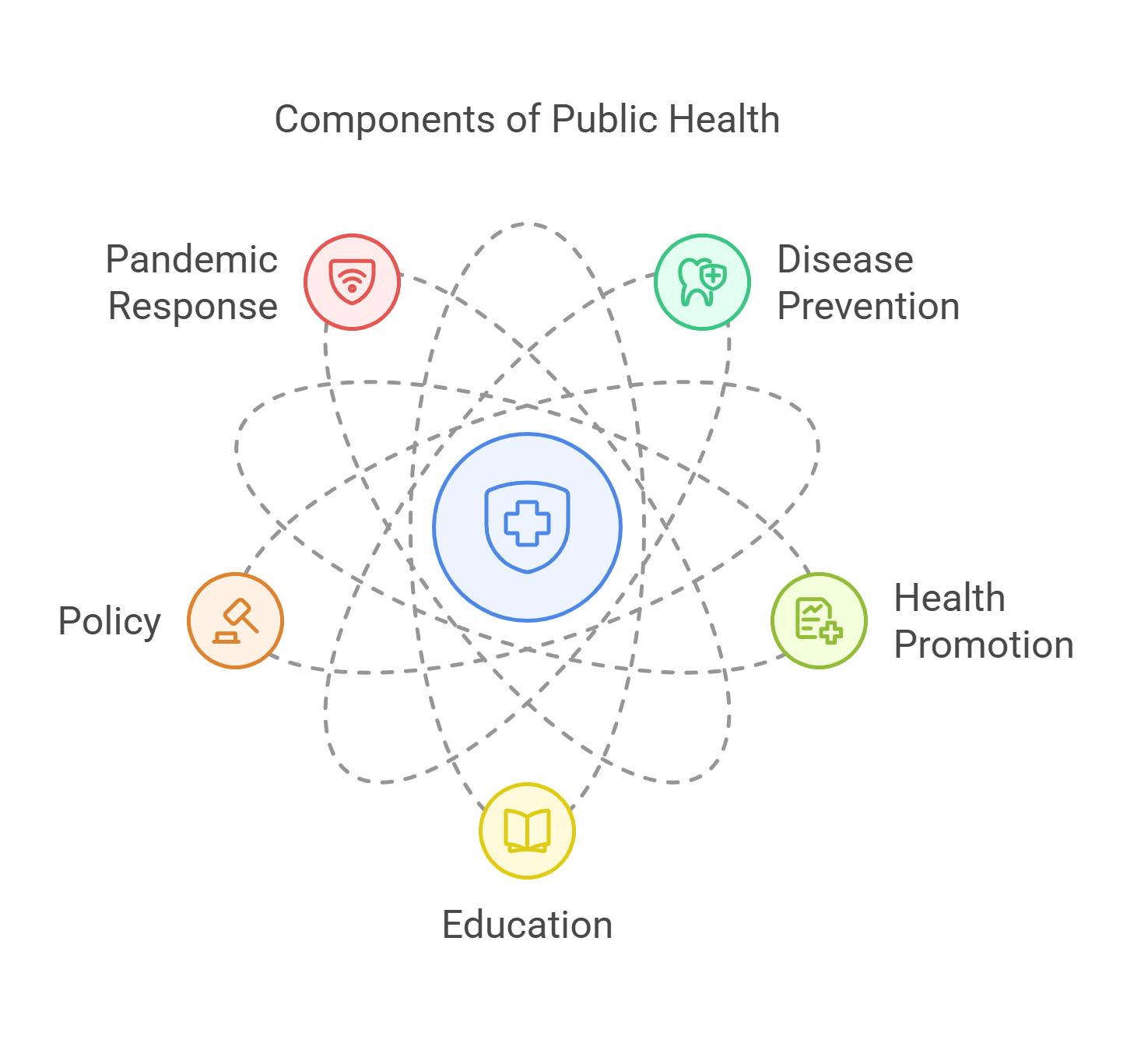
8. Healthcare Policy
Healthcare Policy encompasses the rules, regulations, and laws that shape how healthcare systems operate. Policies determine who gets access to care, how resources are distributed, and how healthcare providers are paid.
- Defines how healthcare systems work.
- Addresses access, affordability, and equity.
- Includes government and private sector roles.
- Influences resource distribution and funding.
- Sparks debates about universal healthcare.
Explained Simply: It’s like deciding the rules for a big game, but instead of a game, it’s about keeping everyone healthy and sharing the medicine fairly.
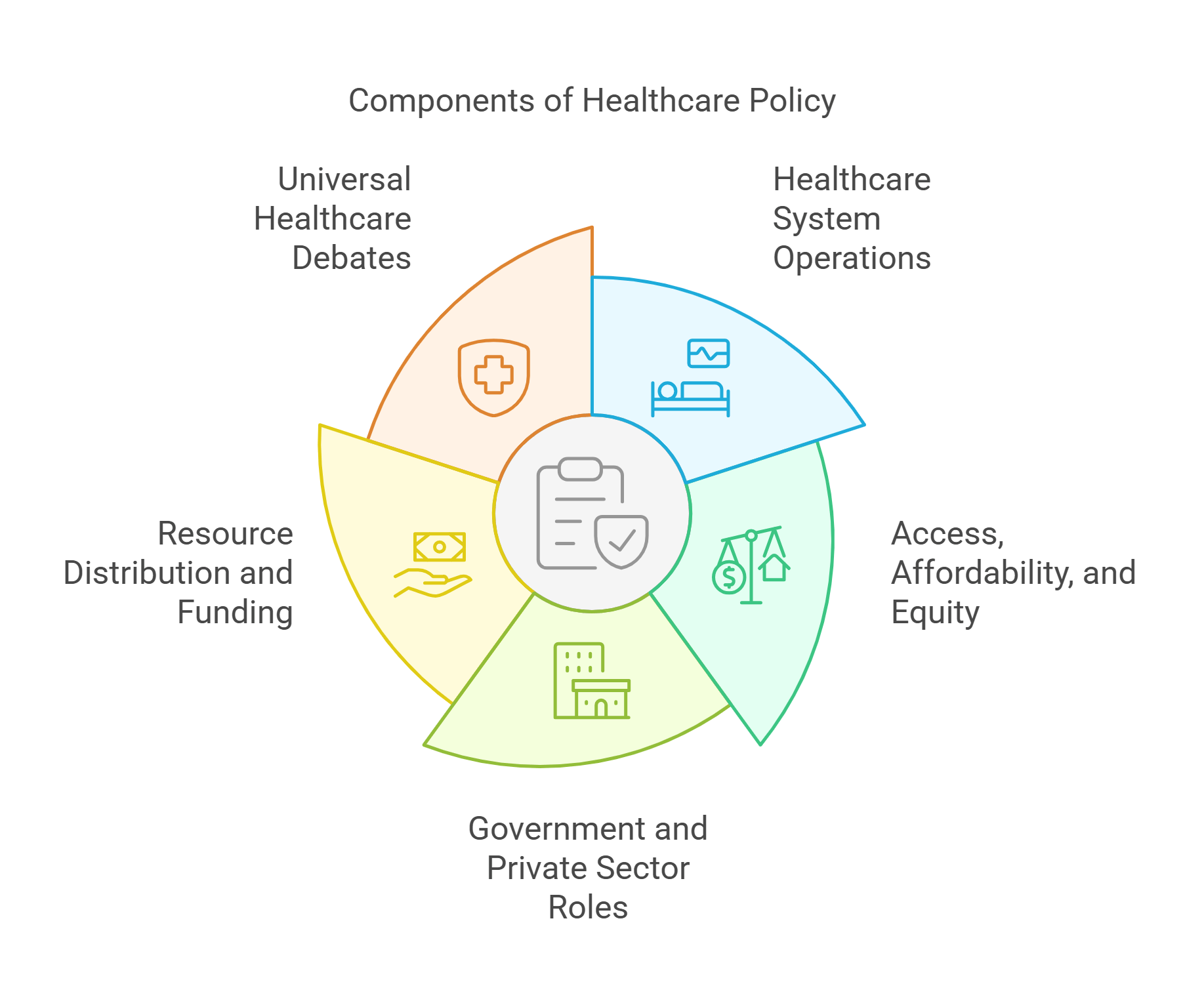
9. Medical Ethics
Medical Ethics examines moral principles in healthcare, focusing on issues like patient rights, informed consent, and equitable care. It ensures that decisions in medicine are fair, compassionate, and respect individual dignity.
- Balances fairness, compassion, and individual dignity.
- Includes patient rights and informed consent.
- Guides end-of-life care and experimental treatments.
- Resolves conflicts between technology and human values.
- Forms the backbone of trustworthy medical practice.
Explained Simply: It’s about making sure doctors and nurses always do what’s right and kind, even when it’s really hard to decide.
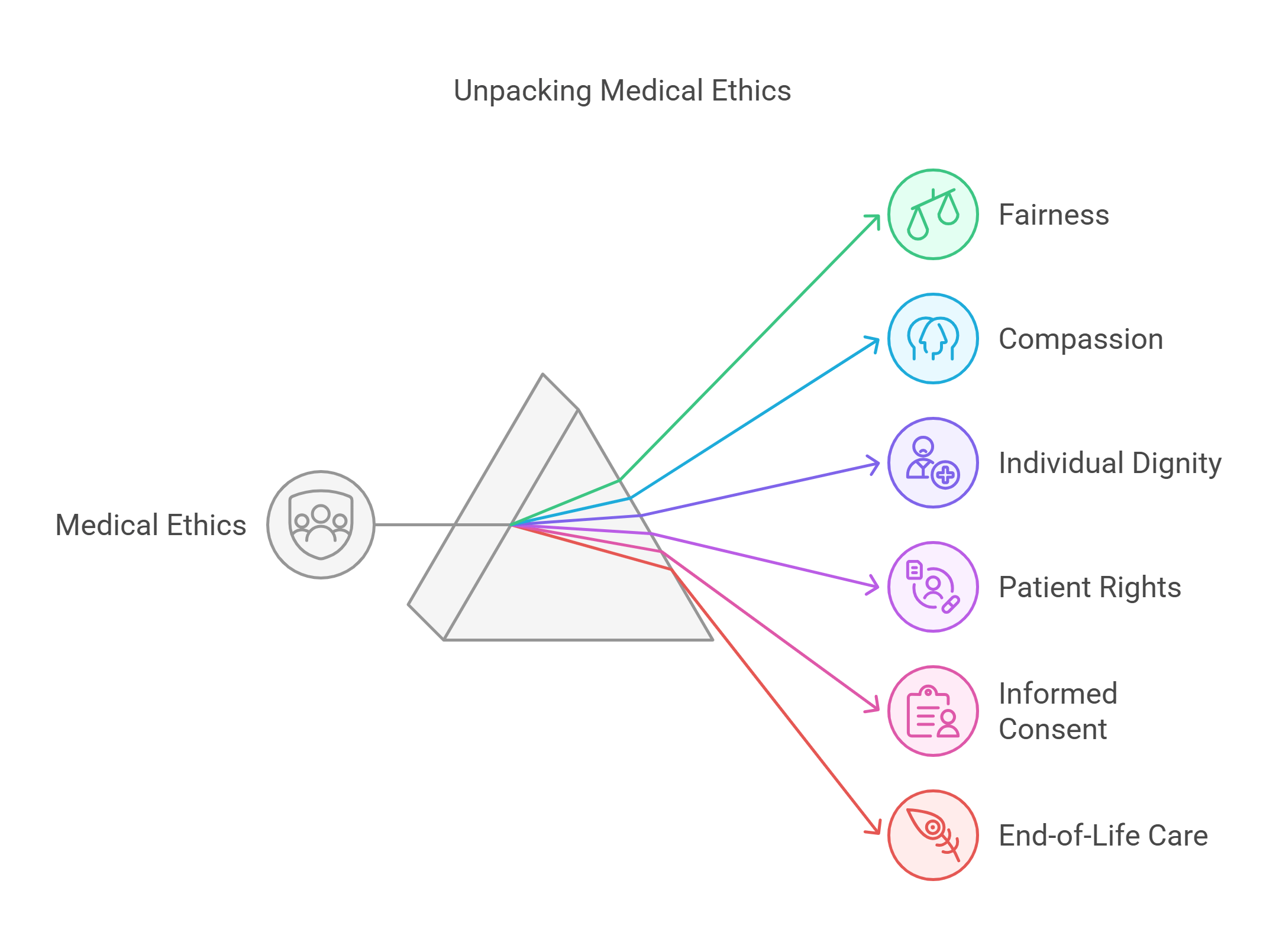
10. Epidemiology
Epidemiology studies how diseases spread and affect populations. It identifies patterns, causes, and ways to control outbreaks, like during the COVID-19 pandemic.
- Studies disease patterns and causes.
- Focuses on prevention and outbreak control.
- Informs public health strategies.
- Combines statistical and scientific analysis.
- Critical for managing global health crises.
Explained Simply: It’s like being a detective who figures out why people are getting sick and stops it from spreading to others.
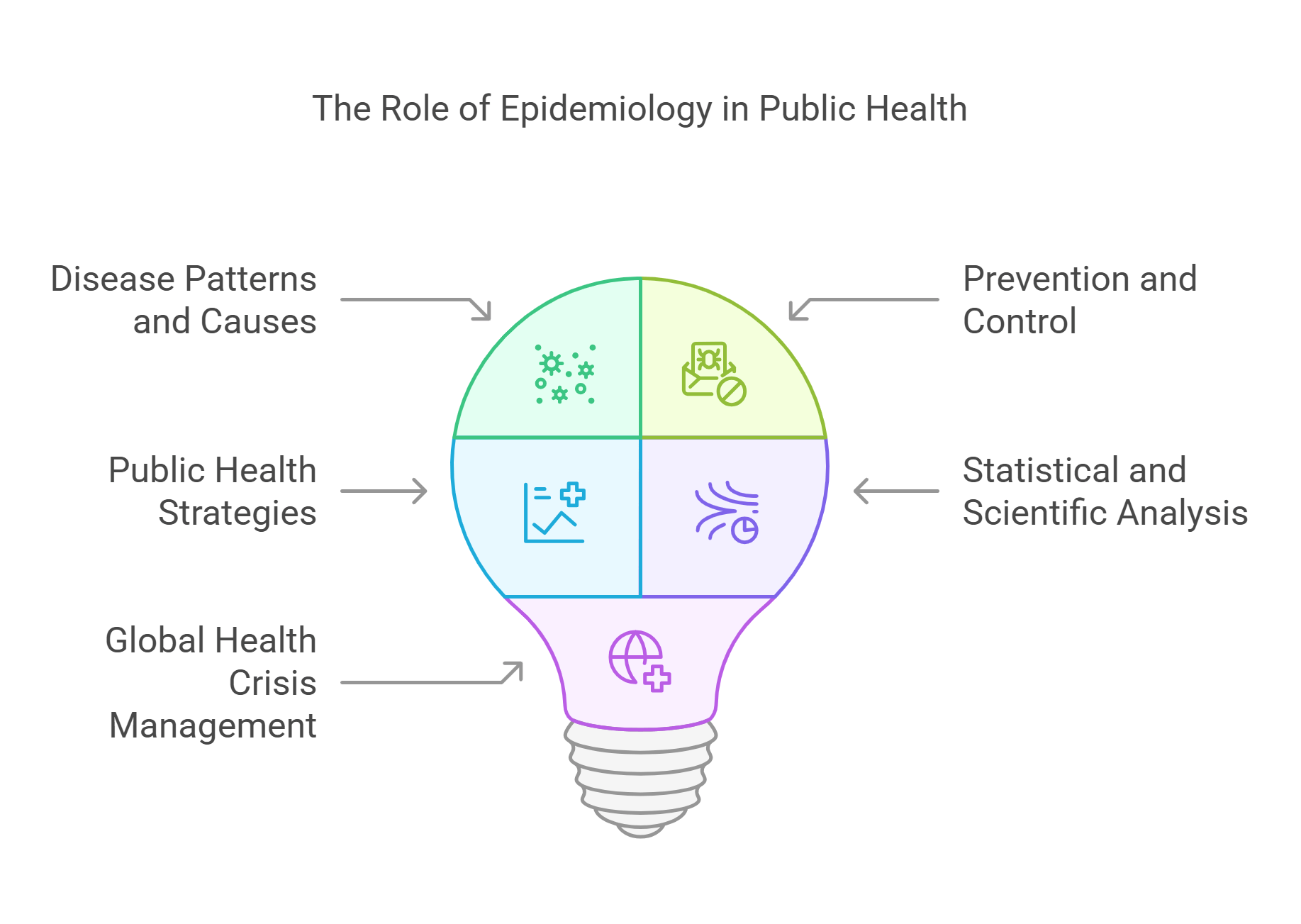
✨ Conclusion
Understanding these healthcare concepts prepares test-takers to engage with complex reading comprehension passages. These ideas highlight the intersection of science, ethics, and policy, sharpening analytical skills and fostering a deeper appreciation for the challenges and advancements in modern healthcare.











